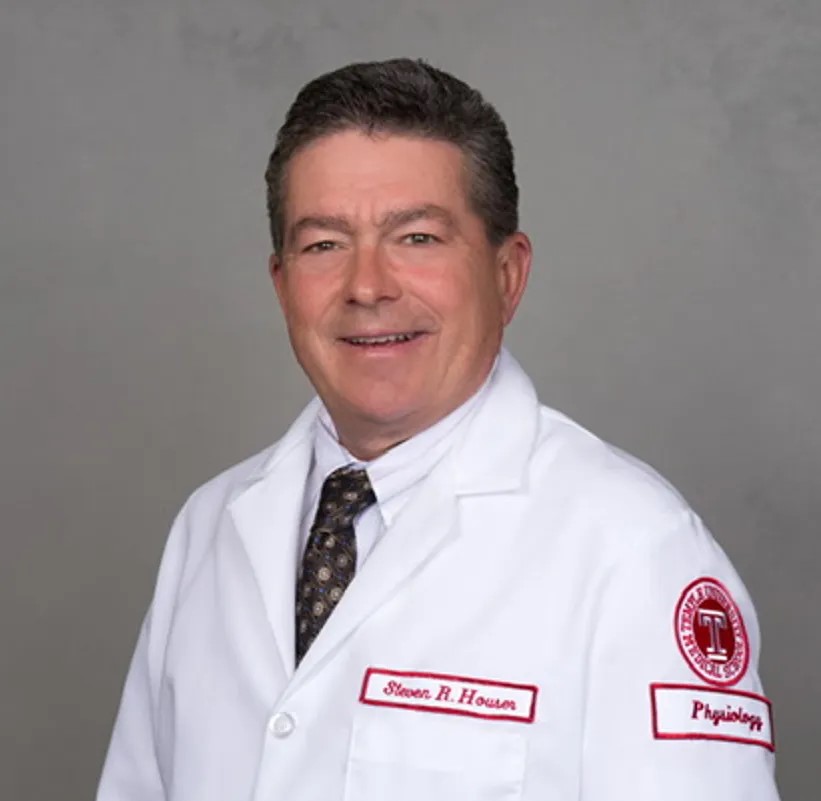
Lecture preview | steven r. houser: translational research to explore the causes and treatments of heart failure

academic frontiers | preview of the 20th lecture
lecture title
Translational Studies to Explore Causes and Remedies for Heart Failure
"exploring the causes of heart failure"
translational research on treatments and treatments
lecture time
april 10, 2024 (wednesday)
15:30—17:30
lecture location
academic lecture hall, 3rd floor, building 1, jinfeng laboratory
keynote speaker
professor steven r. houser
temple university school of medicine, usa
introduction to the keynote speakers

steven r. houser, vice dean, department of physiology, director of the cardiovascular research center, vera j. goodfriend-named dean of the department of physiology, arthur c. guyton professor emeritus of physiology, and internationally renowned cardiac physiologist, nih, united states, temple university school of medicine winner of the "merit" award for significant contributions. he has served as president of the american heart association (aha) (2015-2017), chairman of the aha basic cardiovascular science committee (2009-2010), president of the cardiac cardiology society (2009-2013), and chairman of the organizing committee of the american heart failure society (2010-2012). and other leadership positions.
professor houser is mainly engaged in research on the pathogenesis of chronic congestive heart failure and myocardial repair of stem cells. in particular, he has profound knowledge and significant contributions to the role of various types of calcium ion channels in cardiac hypertrophy and the differentiation and regulation of stem cells. he is an editorial board member of famous journals such as circulation, circulation research, journal of cardiac failure, journal of molecular and cellular cardiology, and american journal of physiology, and serves as a reviewer for more than 10 internationally renowned journals such as science, circulation, circulation research, and cardiovascular research. he has published more than 200 articles and 5 monographs. it has received more than $15 million in funding from the nih and the american heart association.
lecture summary
this lecture will focus on the latest research progress in the pathogenesis and new therapeutic targets of heart failure (including heart failure with reduced ejection fraction and heart failure with preserved ejection fraction). the porcine heart failure model with reduced ejection fraction was used to study the effects of novel stem cell populations on post-myocardial infarction remodeling. the feline heart failure model with preserved ejection fraction was used to study the effects of hdac inhibitors on hypertrophy, pulmonary congestion, and left ventricular filling defects.
This talk will summarize translational approaches to develop and test new therapeutic targets for Heart Failure with reduced Ejection Fraction (HFrEF) and Heart Failure with preserved Ejection Fraction (HFpEF). A pig HFrEF was used to study the effects of a novel stem cell population on post-MI remodeling. A feline HFpEF model was used to test the effects of HDAC inhibitors on Hypertrophy, pulmonary congestion and LV filling defects.
- About Us
-
Research Platform
- Major Disease Sample Database
- Innovative Drug Verification And Transformation Platform
- Experimental Animal Center
- Life And Health Future Laboratory
- Biomedical Imaging Platform
- Cell Multi-Omics Platform
- Pathology Technology Platform
- Bioinformatics Research And Application Center
- Jinfeng Pathology Precision Diagnosis Center
- Research Team
- Information Center
- Join Us


 渝公网安备50009802002274
渝公网安备50009802002274